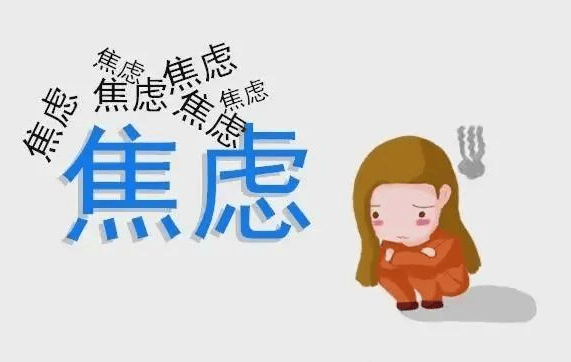In the treatment of epilepsy, controlling seizures is not only to improve the quality of life of patients but also to create better conditions for subsequent treatment. Generally speaking, controlling epileptic seizures cannot be separated from “prevention” and “treatment,” with prevention being particularly important.
Administering antiepileptic drugs is a common way to prevent and treat epileptic seizures. However, the mental state and psychological activities also have a significant impact on epileptic seizures. Research has shown that emotions such as anxiety and depression are more likely to trigger seizures. Patients with these emotions are relatively more difficult to control seizures after an epileptic episode and are more likely to develop into refractory epilepsy.
When these symptoms appear, it may indicate that anxiety is affecting you:
– Panic disorder: sudden onset of panic, palpitations, chest tightness, chest pain, difficulty breathing, feeling of throat blockage, accompanied by intense fear, loss of control, or impending sense of doom. The episodes are short and often accompanied by obvious avoidance behavior or symptoms of autonomic nervous system dysfunction such as tension and sweating.
– Generalized anxiety disorder: showing continuous tension, excessive worry, fear, irritability, restlessness towards a specific object, sometimes without a clear object, but still experiencing tension and anxiety. This worry is unbearable and inescapable, leading to insomnia, muscle tension, palpitations, frequent urination, sweating, and other symptoms of autonomic nervous system dysfunction.
– Social phobia: afraid of being in crowded places, worried about embarrassing and awkward social behaviors in public, fearing ridicule, exhibiting resistance to participating in social activities with obvious reluctance or avoidance, and may experience symptoms of autonomic nervous system disorders such as sweating, blushing, and dry mouth.
These instances of anxiety may indicate prodromal signs of epilepsy:
– Interictal period: symptoms during the interictal period are diverse. At this time, treatment with anti-anxiety drugs or psychological counseling is the best intervention time to prevent epilepsy.
– Preictal phase: often manifests as generalized anxiety disorder, with anxiety symptoms occurring from days to hours before the seizure, intensifying as the seizure approaches.
– Ictal phase: actual seizure period symptoms, characterized by intense anxiety and muscle stiffness.
– Postictal phase: mainly characterized by avoidance behavior and symptoms of autonomic nervous system dysfunction, such as fear of light, temperature stimuli, reluctance to interact with others, and fear of ridicule.
When epilepsy coexists with anxiety, which should be treated first?
When epilepsy meets anxiety, it seems to initiate a vicious cycle: anxiety increases psychological tension, which in turn triggers epilepsy; after a seizure, the damage to the brain not only exacerbates anxiety symptoms physiologically but also brings enormous psychological pressure to the patient, worsening the sense of anxiety.
In the treatment process, treatment should be based on specific circumstances:
– Heavy self-imposed psychological pressure: communicate with medical staff to deepen understanding of the disease and relieve anxiety.
– Emotional changes caused by some antiepileptic drugs: consider using antiepileptic drugs with mood-stabilizing effects.
– Severe anxiety with no specific cause: consider adding anti-anxiety medication to the treatment.
In daily life, the following should also be noted:
– Adjust lifestyle to avoid fatigue, ensure adequate sleep and rest, and maintain proper nutrition intake.
– Avoid alcohol, smoking, staying up late to prevent triggering epilepsy seizures.
– Engage with family members, help patients build treatment confidence, alleviate anxiety and depression.
– Supervise patients to adhere to antiepileptic drug regimen and closely monitor emotional changes post-medication.
Anxiety is an “invisible stumbling block” affecting the effectiveness of epilepsy treatment, often overlooked by patients and their families. Taking action to combat anxiety is necessary to consolidate treatment outcomes.


